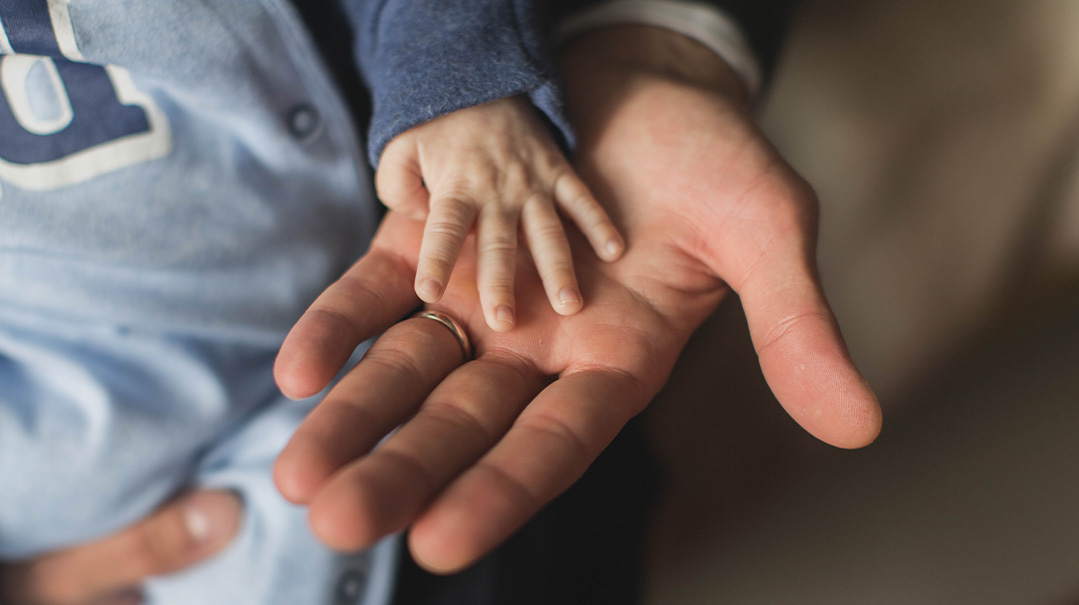Scion

It was different before the birth, what did he have then? Grainy images, a sound like a horse or a train that they said was a heartbeat, a baby that seemed all Denya’s — and now the baby’s here, and he’s his

Aron walks across the gravel at the perimeter of the moshav. The night is alive with the sounds of things people don’t hear during the day. Wind plays the summer leaves like an instrument; from out in the forest, jackals howl, coyotes call.
He passes the little security booth that was his camp for the night, waves to Yoav, who’s taken over for him an hour early. He crosses over to the small knot of houses at the entrance of the moshav.
The remainder of the houses are scattered over a dozen streets. They are a few hundred people staking out their claim to this land, this hill, to settle it, to work it, to live together — and apart from the rest.
They are stubborn, persevering, many of them following the path of their fathers before them, but a growing group of others, too. People with the unlikeliest of pasts coming up here, perhaps to flee, perhaps to find, drawn by the land and the love and the longing to be grounded in the most elemental way.
The breeze picks up, and it carries a cry.
In a flash, he is there, at their home. Over the past five days, his ears have adjusted, twitching like an animal’s for any sound of distress. He is a father now. At 32, a first-time Abba.
He rushes through the door and up the steps to their room.
“Denya, I’ll take him, okay?”
She is rocking the cradle. She nods gratefully, lies back down, and closes her eyes.
He takes the baby out. His gun barrel clatters against the cradle, and Denya’s eyes fly open.
She slaps her forehead, “Oh, you’re on shift. I forgot for a moment, I’m still half-asleep. You can’t take him out there.”
“No, no, Yoav’s taken over already, he couldn’t sleep, he said. Let me take this little guy out for a walk to calm him.”
She whispers something, then she’s sleeping again.
Aron puts on the baby carrier and gently places his son inside it. The baby whimpers against his chest, growing quieter as Aron walks down the stairs, through the living room, and onto the gravel path.
He’s not used to the weight, the warmth. He tousles the tiny, almost furry hair, light like summer wheat. Like his, so different from Denya, his French-born wife.
He looks down and regards his son.
Who are you, child?
Will he be Meshilem Zanvil ben Ahron? For the grandfather who passed away when Aron was ten, the grandfather who was king for so long. Meshilem Zanvil ben Ahron, a pattern to hold on to, the father-son chain of old.
The baby stretches, yawns, and the yawn is so human — tiny mouth stretching open — Aron stares and laughs at the little face. We’re all the same, and yet....
Meshilem Zanvil? How is he thinking of his grandfather’s name for his son? It belongs to a different time, a different Aron…
Yet how can he not? It is all he can think about.
It’s two days to the bris.
Overhead, the sky starts to consider a new day, lightening, blushing by degrees. And out on the grass, memories come from the dark and from the light, assailing the man who holds a tiny child.
He was the youngest. The lucky thing at the end of the line, the last boy, after a string of girls and two oldest brothers, finally, a namesake for his illustrious great-grandfather. And then, when Aron was about ten, his own grandfather, Meshilem Zanvil, had passed away.
“Di vest huben dem Meshilem Zanvil ben Ahron — you will have the Meshilem Zanvil ben Ahron,” they used to tell him as a young teen, before he could fathom these things. It had been a mission, a challenge, a pride — and he’d abandoned it all. And now this tiny thing of seven pounds is bringing him to his knees.
He is miles away from that cheder boy in Williamsburg. And Denya, what would she say to a name like that?
“Who are you?” he whispers to the baby. “Who will you be?”
It’s lighter than he wants outside, a new day, the baby’s sixth. He closes his eyes — to the light, to the issue, to his own powerlessness — and lets the day come.
Oops! We could not locate your form.







